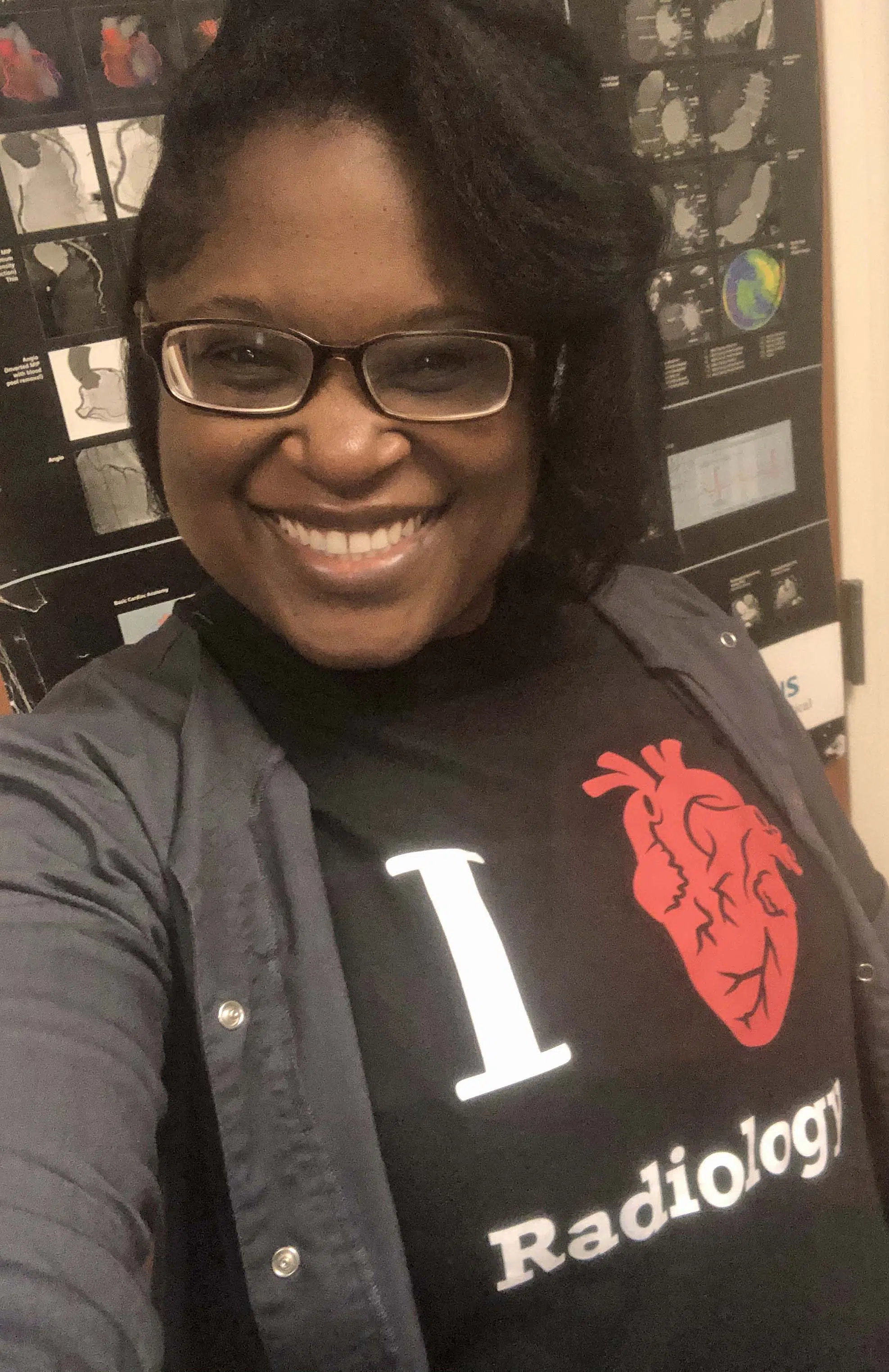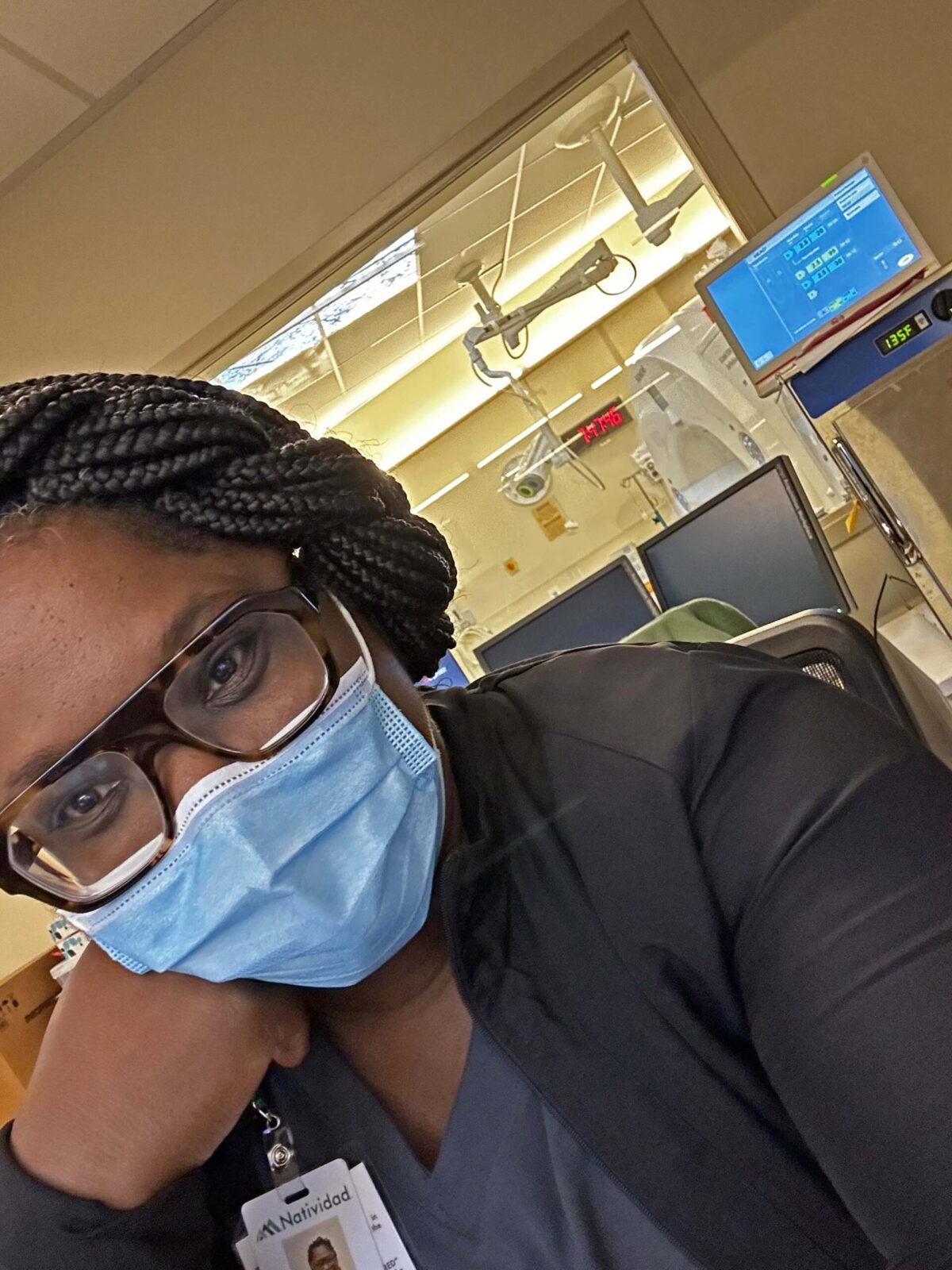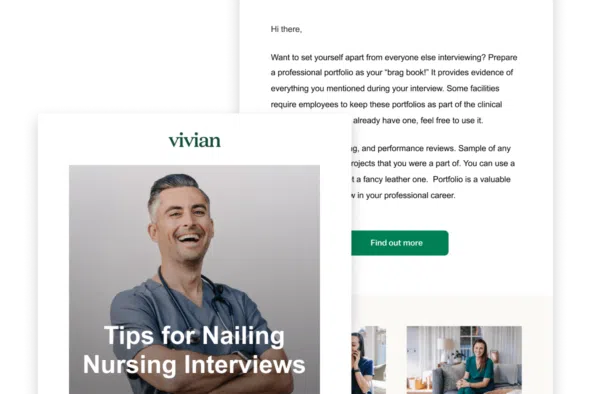In Vivian Health’s ongoing Rx for Success series, we profile a healthcare provider from our platform each week, highlighting critical career moments fueling their renewed passion for healthcare.
While many associate Vivian Health with nurses, a variety of allied healthcare professionals, such as technologists, also use our platform to find jobs. Recently, we caught up with Vivian user Shanta Jackson, a magnetic resonance imaging (MRI) tech to discuss her career in radiology and her move to travel positions in recent years.
“I’ve been in the radiology field for over 18 years. I love it, and I wouldn’t consider doing anything else!” Jackson told us.
After nearly two decades in various medical imaging specialties, we asked Jackson what keeps her passionate about her healthcare career, particularly in recent years when she’s worked in MRI tech jobs. One thing she said rekindles her passion is a procedure where patients may emerge from the MRI machine cured of their condition.
Jackson explained how patients with essential tremor, a kind of body-shaking condition, are sometimes treated by doctors directly in the MRI machine and may emerge with reduced or eliminated shaking.
“It’s nice to see that the patient has, at the end of that exam, come out and they no longer have those symptoms of tremors, and they feel like their normal selves again,” she said.
Jackson also noted that MRIs can be fundamental for diagnosing other severe types of illness, such as cancer, making her work an essential part of patients’ care.
“Those exams really truly help the patients in their progress of being sometimes cancer-free or going into remission from those treatments.”
Why Jackson Chose MRI Tech as Her Radiology Specialty

Radiology is a branch of medicine using imaging techniques to diagnose and treat disease. It’s a broad field with multiple specialties, as we recently discussed with radiology technologist Sara Beedy in another installment of our Rx for Success series. Jackson explained the variety of radiology modalities besides MRI.
“You have X-ray tech, computed tomography (CT), nuclear medicine, radiation therapy, sonography, and it’s just one big umbrella. But it depends on what you want to specialize in. You may have to do additional schooling.”
Jackson added, “If you were to get bored with doing one specialty, there are different specialties that would keep you on your toes.”
Magnetic resonance imaging is another specialized radiology modality and requires specific training. Schooling typically involves getting an associate degree in radiologic technology before doing additional training specifically on MRI machines. Jackson’s own career took various steps through radiology before she became an MRI technologist.
“I started out as a radiology tech doing X-rays, and then from there, I moved on to CT. During CT, I worked in the same area as an MRI tech, so we would help each other,” she recalled. “That’s what you do a lot in the radiology department; we help each other. So I found myself getting interested in MRI.”
Notably, the average MRI tech staff salary in late September 2023 was $45.10 per hour, about 14% higher than the national average for practicing allied health professionals. Per Vivian’s salary data, it was also significantly higher than a radiology technologist’s salary, which averaged $37.06 during the same period.
The workload can also vary among the radiology modalities, with MRI techs seeing fewer patients per day. For instance, during her years doing CT work, Jackson typically worked with at least two patients per hour and as many as six. But now, in the MRI field, she works with at most two patients per hour, and often, one patient’s procedure can take an hour or more.
During MRI scans, techs place patients inside a chamber that uses strong magnets and radio waves to generate detailed images of the patient’s internal organs and soft tissues. These procedures require stringent safety considerations.
“Because the magnet is always on, we have to have patients remove clothing, jewelry, watches and cell phones,” Jackson said. “None of that stuff can go into the room itself because it will get attracted to the magnet and potentially can cause burns, bruises or blisters to the skin of the patient.”
Coming to Patients’ Rescue Using Vivian’s One-Stop Shop
Travel healthcare work offered possibilities for Jackson during the COVID-19 pandemic when radiology experienced some dramatic shifts. The pace of elective procedures dropped considerably, leading outpatient facilities like the one employing Jackson to furlough many staffers. Meanwhile, hospitals saw an increase in patient activity due to the pandemic.

To find travel tech jobs at hospitals with growing MRI demand, Jackson turned to Vivian.
“Vivian is like a hub of all the different agencies,” Jackson noted. “So it was like a one-stop shop. Vivian can connect you to different agencies, ranging from agencies that have been around for a while to even some new ones.”
Jackson said she loves how Vivian simplified and consolidated the job search process.
“Vivian kind of eliminated the need to be on five different apps or five different searches. I could just go on Vivian and look at and see several different opportunities. I could compare different rates.”
For Jackson, the Vivian app (Apple / Android) is particularly useful for finding jobs and sharing opportunities with friends. “I love the app! I can access it on my phone. I get notifications, and I can quickly respond on my phone because of the app.”
Jackson explained that sometimes colleagues tell her that they’re considering traveling or ask her advice on what agency to use. In those cases, she has a simple answer. “I’ll just say, ‘go to Vivian. That way, you can shop around, do a lot of comparison,’ and then all I have to do is just forward them the app,” she said.
Taking travel positions has also allowed Jackson to explore some interesting and lucrative-paying areas of the U.S. in recent years. She said, “I travel wherever my interest may lead me or sometimes because the money’s good. I might want to go to a different state because I have family there. Or it could be I want to go to a different state just to have an adventure.”
Jackson added, “I really like California. That has been the most memorable for me because that is a state where I have returned for multiple jobs.”
Although she’s a travel tech, Jackson considers Atlanta her more permanent home base, and she works pro re nata (PRN), meaning “as needed,” for one facility there between travel positions. Nevertheless, she’s always looking forward to her next assignment away from home.
“It’s kind of exciting to go to a new state, a new facility, and meet new people and have new adventures.”
Choose your own new adventure by searching for allied health professional jobs on Vivian.









